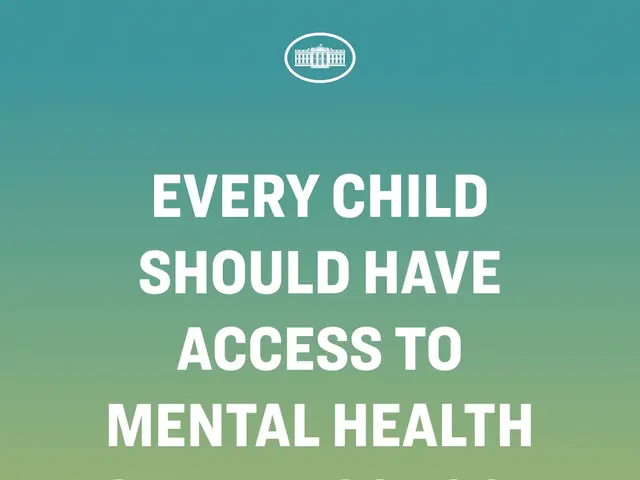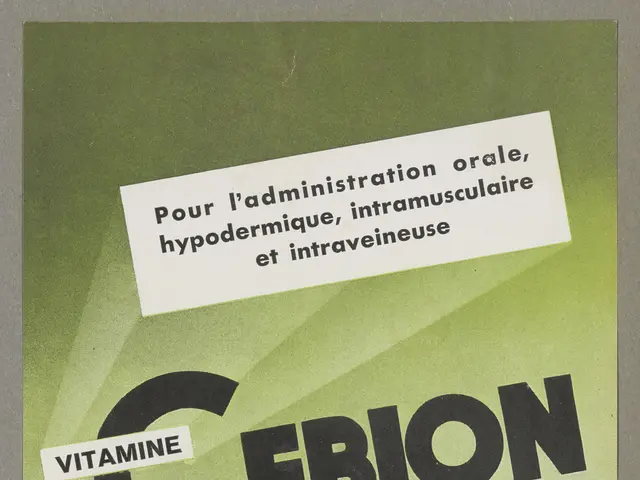Sensory Gap Filler in the Brain: Efficiently Adjusting Perceptions Without User Notification
The Magic of Brain's In-built Corrector
Ever read a sentence where the letters are jumbled and still made sense of it? Welcome to the magical world of your brain's auto-correction. It's not just a party trick; it's a testament to your brain's incredible ability to auto-edit sensory information, filling in gaps without you even realizing it. Needless to say, this phenomenon ensures a smooth perception, allowing us to navigate a world that's full of incomplete and ambiguous sensory inputs.
Decoding the Brain's Mystery
The brain doesn't just passively record incoming sensory information; it actively interprets them using context and prior knowledge to construct a coherent perception of the world. For instance, in the realm of auditory perception, the phonemic restoration effect demonstrates this capability. When parts of speech are obscured by noise, our brains often fill in the missing sounds, ensuring continuous understanding.
The Power of Prediction
At the heart of the brain's auto-correction lies the concept of predictive coding. This theory suggests that our brains constantly make predictions about incoming sensory information based on past experiences. When actual inputs match these predictions, perception moves smoothly. On the other hand, discrepancies or "prediction errors" prompt the brain to adjust its internal models, refining future predictions. Essentially, the brain not only reacts to what it perceives, but it also anticipates it.
The Team Behind the Magic
Several brain regions collaborate to facilitate sensory auto-correction. The auditory cortex processes sound, the prefrontal cortex engages in higher-order processing, the hippocampus plays a role in memory, and the thalamus acts as a filter. These regions work together to ensure our perceptions are not just accurate but also contextually relevant, even when sensory data is incomplete or ambiguous.
Real-world Impact
The brain's auto-correction has far-reaching implications for various aspects of our lives:
- Communication: It enables us to understand speech even in noisy environments or when words are mispronounced.
- Reading: It allows for the interpretation of misspelled or jumbled text, preserving reading fluency.
- Virtual Reality: It enhances immersive experiences by filling in sensory gaps, creating a seamless virtual environment.
- Artificial Intelligence: It inspires algorithms that mimic predictive coding, improving machine learning and data interpretation.
Supercharging the Brain's Power
While the brain's auto-correction is a natural process, certain practices can amplify its power:
- Mindfulness and Meditation: They improve attention and awareness, aiding in accurate perception of sensory inputs.
- Cognitive Training: Exercises that challenge perception and memory can strengthen neural pathways involved in predictive processing.
- Balanced Nutrition: Consuming nutrients like omega-3 fatty acids and antioxidants supports overall brain health.
- Regular Physical Activity: It promotes neuroplasticity, enhancing the brain's adaptability and refining its predictive models.
The brain's ability to auto-correct sensory information is a testament to its remarkable adaptability and efficiency. By leveraging context, prior knowledge, and predictive mechanisms, it ensures that our perception of the world remains coherent, even amidst incomplete or ambiguous inputs. Understanding and supporting this intrinsic function can enhance our interaction with the environment, improve communication, and pave the way for technological innovations that align with our cognitive processes.
Bonus Facts
- The dynamic role of inhibitory neurons in learning and memory suggests that the brain's ability to selectively decrease inhibition can enhance spatial learning by rapidly encoding important information.
- In conditions like Alzheimer's, impaired inhibition can lead to difficulties in forming new memories. Understanding the timing and location of inhibition could provide insights into treating such disorders.
- The brain's preparation for movement before actual execution highlights the sophisticated preprocessing involved in motor tasks, enabling smoother and more efficient movement.
- Advances in neurotechnology, such as non-invasive EEG monitoring, can enhance the usability and provide comprehensive multimodal monitoring, leading to more intuitive control systems in vehicles and other devices.
- BCIs can restore movement in paralyzed limbs by combining neural signals with electrical muscle stimulation, an innovation with potential for treating conditions like paralysis and improving quality of life.
- The brain's incredible ability to auto-edit sensory information extends beyond correcting jumbled sentences, playing a significant role in our memory, attention, and focus.
- For instance, when reading a book, our brain can fill in missing letters or words, ensuring a seamless flow of learning.
- Regular exercise, a key element in the health-and-wellness industry, promotes neuroplasticity, thereby improving the brain's capacity for cognitive training.
- Technological advancements, such as nootropics and AI, are inspired by our brain's natural auto-correction and prediction abilities, aiming to enhance cognitive performance and mental health.
- Mindfulness practices, like meditation, contribute to neurological development by promoting mindfulness, a state of awareness that enhances our ability to focus and navigate the complexities of learning.
- Research in psychology reveals that the brain's predictive abilities are influenced by our past experiences and prior knowledge, shaping how we perceive and engage with the world.
- In the realm of nutrition, essential brain-health foods like omega-3 fatty acids and antioxidants provide the fuel for maintaining a healthy mind and optimal cognitive functioning.
- The study of science continues to unravel the mysteries of the brain, shedding light on the intricate interactions between different brain regions and their roles in various aspects of learning and mental health.
- As we delve deeper into understanding the intricacies of our brain, we can foster a more mindful approach to our daily lives, leveraging the power of neuroplasticity, meditation, cognitive training, and balanced nutrition to uphold our mental well-being.






